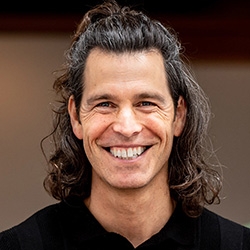
NVC Resources on Judgment
-
Trainer Tip: When someone is in pain and lashing out, might be a time when empathy is needed most. Empathizing in these moments can be very challenging. Mary offers a few words of ecouragement for these situations.
-
This gentle, healing telecourse recording will assist you in unearthing feelings and issues that have become tangled up with loss, enabling you to face whatever is blocking your grief.
-
John and Stephanie combine mediating conflict, parenting and study of brain science to this ground-breaking course recording on how to funnel your anger and your child’s anger toward mutual caring and peace.
-
Trainer Tip: Overwhelmed with all that you want to do? If so, what are you working to change? Is it a behavior or a consciousness? Where were you with this issue when you first decided to create change? And now where are you? Celebrating your progress can encourage you to keep trying. You wouldn’t expect to jump on a treadmill and jog three miles the first time. Don't have the same expectations for your emotional fitness either!
-
In Yoram’s 2021 course, participants delved deeper into their NVC practice so they were better prepared to meet conflict head-on. In this 5-session series, Yoram explores: the power of empathy to change the trajectory of heated conversations embracing the internal conflicts of the different parts of ourselves how to approach differing views peacefully the use of NVC to help let go of judgments how to confidently ask for what you want
-
In this compelling interview with Liv Larsson, CNVC Certified Trainer from Sweden, the NVC concept of enemy images — how they develop, what they represent and how they affect our relationships with others and self — is explored.
-
In this recorded telecourse, John Kinyon, world renowned CNVC Certified Trainer, guides you through processes to strengthen your capacity for mindful presence and awareness of your thinking, and to develop the skills to translate thoughts into observations.
-
CNVC Certified Trainer Arnina Kashtan talks about what she calls "witnessing humanity," touching on the gift of presence, empathy vs. identification and staying present in the face of intensity.
-
In this prerecorded telecourse, Raj Gil uses an interactive dialogue and proven exercises to help you develop a profoundly healthy response to anger, right in the moment.
-
Miki speaks to peace activists about connecting with the life vision in those who stimulate pain in them.











